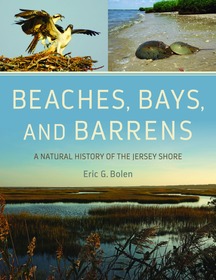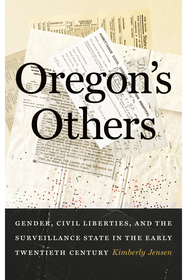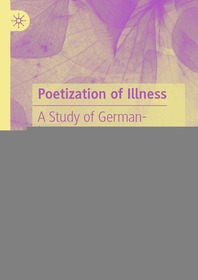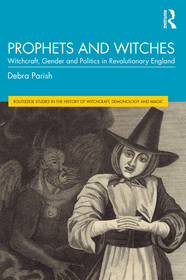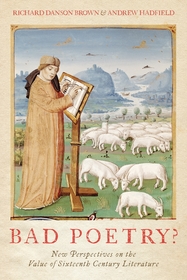
Bad Poetry? New Perspectives on the Value of Sixteenth-Century Literature
Sorozatcím: Studies in Renaissance Literature; 46;
- Kiadói listaár GBP 95.00
-
45 386 Ft (43 225 Ft + 5% áfa)
Az ár azért becsült, mert a rendelés pillanatában nem lehet pontosan tudni, hogy a beérkezéskor milyen lesz a forint árfolyama az adott termék eredeti devizájához képest. Ha a forint romlana, kissé többet, ha javulna, kissé kevesebbet kell majd fizetnie.
45 386 Ft

Beszerezhetőség
Még nem jelent meg, de rendelhető. A megjelenéstől számított néhány héten belül megérkezik.
Why don't you give exact delivery time?
A beszerzés időigényét az eddigi tapasztalatokra alapozva adjuk meg. Azért becsült, mert a terméket külföldről hozzuk be, így a kiadó kiszolgálásának pillanatnyi gyorsaságától is függ. A megadottnál gyorsabb és lassabb szállítás is elképzelhető, de mindent megteszünk, hogy Ön a lehető leghamarabb jusson hozzá a termékhez.
A termék adatai:
- Kiadó Boydell & Brewer Ltd
- Megjelenés dátuma 2025. november 25.
- Kötetek száma Print PDF
- ISBN 9781843847229
- Kötéstípus Keménykötés
- Terjedelem298 oldal
- Méret 234x156 mm
- Súly 666 g
- Nyelv angol
- Illusztrációk 9 b/w illus. 700
Kategóriák
Rövid leírás:
An examination of the messy, often contradictory processes of poetic production and reception. The volume offers an invitation to read widely, question deeply and think critically.
TöbbHosszú leírás:
An examination of the messy, often contradictory processes of poetic production and reception. The volume offers an invitation to read widely, question deeply and think critically. In the wake of C. S. Lewis's still-contested taxonomy of 'drab' and 'golden' poetic ages, this volume rethinks the critical and aesthetic stakes of bad poetry in early modern England-not to dismiss it, but to ask what it meant, how it functioned, and why it mattered. Revisiting poets like Arthur Gorges, Walter Ralegh, Thomas Lodge, and Thomas Churchyard, contributors interrogate the literary marketplace, aesthetic judgment, and evolving generic conventions between 1520 and 1609. Through close readings of works by Spenser, Shakespeare, Skelton, and others-alongside notorious outliers like Richard Stanyhurst-the collection considers poetic failure as both historical artifact and interpretive opportunity. From the clumsy excess of hexameters to the ideological weight of neo-Latin verse, from scribal emendations of Mother Hubberds Tale to the uncertain metrical charge of the lengthy fourteener, these essays reveal how poets and readers alike navigated shifting ideas of taste, style, and literary value. Grounded in close reading, textual scholarship, and formal analysis, this collection offers a model of sustained, comparative literary criticism that is both theoretically engaged and deeply historicised. It foregrounds the interpretive value of stylistic awkwardness and aesthetic resistance while charting the long afterlives of poetic judgment from Lewis to the present.
TöbbTartalomjegyzék:
Introduction: Good and Bad Poetry in the Age of the Tudors - Richard Danson Brown and Andrew Hadfield 1. Between Drab and Golden: Gorges, Ralegh, C. S. Lewis and 'Evaluative Criticism - Jonathan Gibson 2. Sub-Shakespearean? The Poetry of Thomas Lodge - Cathy Shrank 3. 'Thwick thwack thundring': On Stanyhurst's 'uncooth' thunder; or, how bad is onomatopoeia? - Eric Langley 4. Brewing, bartering, and bricking it down: Style and value in Skelton's The Tunnyng of Elynour Rummynge - Andrew Zurcher 5. Lineal longueurs: taste and evaluation in Elizabethan long-line forms - Richard Danson Brown 6. From Drab to Worse: Spenser and the Badness of Neo-Latin Verse - Katherine Mennis 7. Thomas Churchyard and The Worthines of Wales: poet, nation and authority in Elizabethan England - Andrew McRae 8. Metaphors and Hexameters in the Nashe-Harvey Quarrel - Andrew Hadfield 9. Bad Poetry? 'Ile Stabbe Ye!': Popularity, Obscurity, and the Sixains of Samuel Rowlands - Tamsin Badcoe 10. De-basing the Style: early readers' revisions of Mother Hubberds Tale - Elisabeth Chaghafi 11. A Simple Mishap and a Boring Tournament in The Faerie Queene - Katharine Addis Afterword - David Wilson-Okamura
Több



